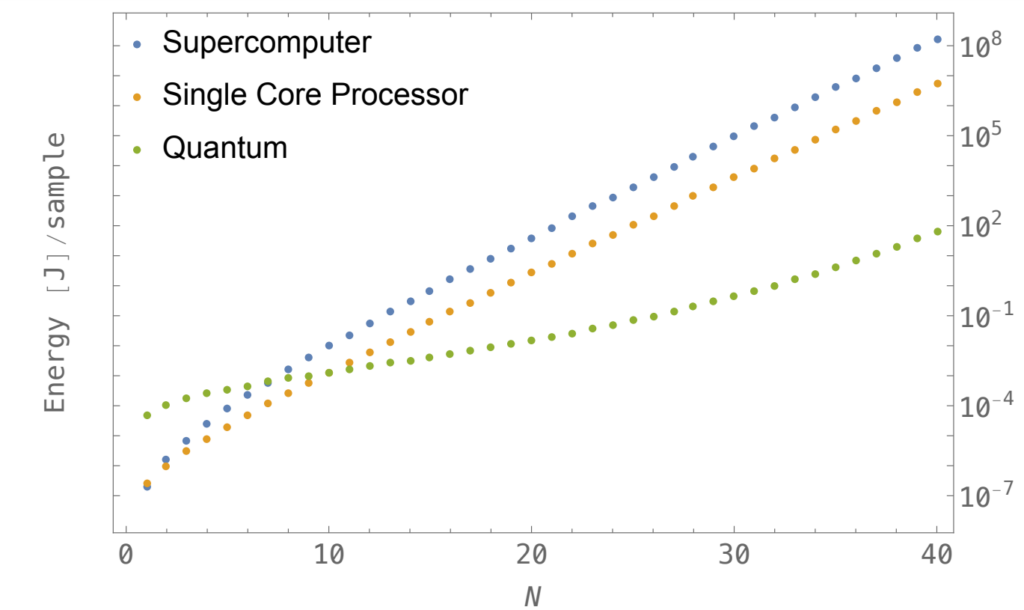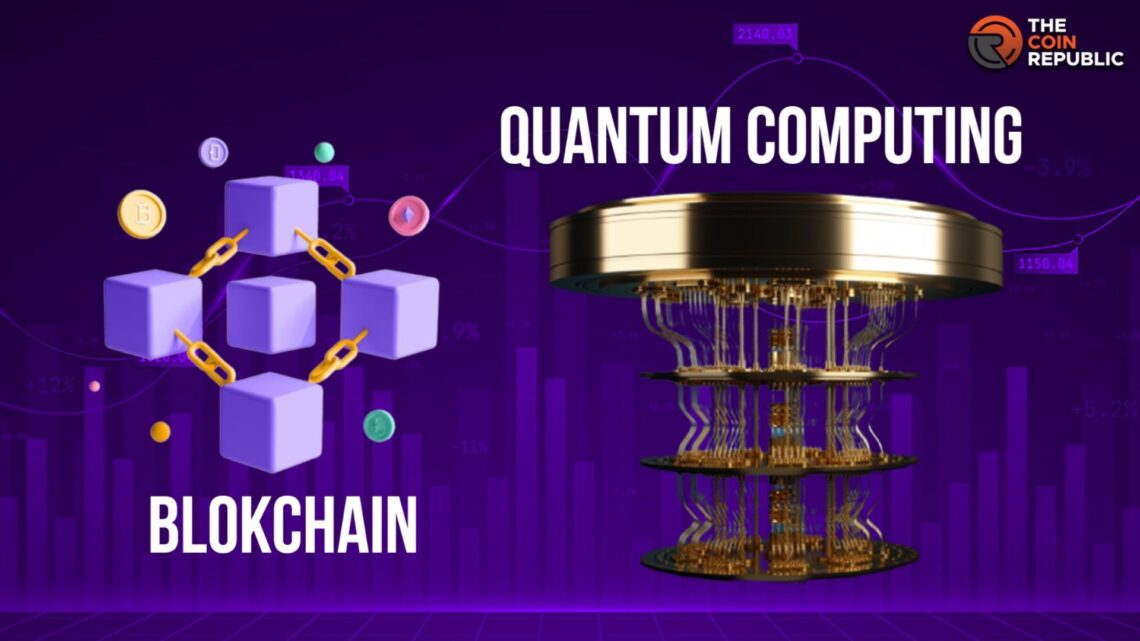- 1 Quantum computers may prove more energy efficient for blockchain.
- 2 Supercomputers can pre-compute the problems unlike quantum computers.
New breakthroughs in blockchain are making the technology a blue diamond for many businesses. But the environmental impact it delivers is just as bad as traditional vehicles using fossil fuels are sending. However, a recent research conducted in collaboration of a group of Australia and U.S.-based scientists and researchers at BQT Technologies, a quantum security startup, came up with a solution.
Quantum Science May Improve Blockchain Functionality
The report released on arXiv, an open-access repository, highlights the use of boson sampling, a computation method using quantum computing, for solving complex mathematical problems required in proof-of-work (PoW) blockchains. The paper contained comprehensive data depicting how the process is implemented.
Our new paper on using NISQ-era quantum sampling problems in proof-of-work blockchain consensus algorithms. In collaboration with @BTQ_Tech.https://t.co/MKAB2czqSk
— Peter Rohde (@drpeterrohde) June 1, 2023
Additionally, the authors of the paper propose binning, a method used in data mining, to eliminate cheaters on one hand and providing rewards to miners on the other. Both the outputs are then added on a blockchain with the latter verifiable using classic computers.
Researchers believe quantum-boson samplers to be more energy efficient than classic computers. The document explained that more powerful application specific integration chips (ASICs) can be developed, however, will be limited. Adding that development of faster “quantum ASICs” for boson sampling is unlikely.
Supercomputers are capable of pre-computing unlike quantum computers, however, the process is unnecessary to solve the blocks. Moreover, researchers said that solving them does not make the computer any better.

Authors concluded, “Whereas classical PoW schemes such as Bitcoin’s are notoriously energy inefficient, our boson sampling-based PoW scheme offers a far more energy efficient alternative when implemented on quantum hardware. The quantum advantage has a compounding effect: as more quantum miners enter the network the difficulty of the problem will be increased to maintain consistent block mining time, further incentivizing the participation of quantum miners.”
Capturing Experts’ Attention in Different Sectors
PoW blockchains have witnessed backlash from environment enthusiasts globally. Ethereum took initiative to off-set the damage they were potentially sending to the climate. All their operations were shifted to their proof-of-stake blockchain dubbed Beacon Chain during The Merge.
Issuer of USDT stablecoin, Tether, recently announced they will start Bitcoin (BTC) mining in Uruguay. The nation is popular for its renewable energy sources. The company believes the country’s reliable power grid is a fitting bill for modern industries.
The U.S. is progressing towards their goal to go carbon negative by 2050. However, crypto mining operations started becoming a headache for the government. According to White House Office of Science and Technology Policy (OSTP), the activity is making it difficult to mitigate climate change.
Blockchain technology is capturing the attention of experts in different industries. Recently, the United States National Library of Medicine (NLM) released a proposal to use this tamper-proof state-of-the-art tech for electronic health records (EHRs). The scheme focused on the growing covid data globally and how the tech can help avoid its misuse.
Anurag is working as a fundamental writer for The Coin Republic since 2021. He likes to exercise his curious muscles and research deep into a topic. Though he covers various aspects of the crypto industry, he is quite passionate about the Web3, NFTs, Gaming, and Metaverse, and envisions them as the future of the (digital) economy. A reader & writer at heart, he calls himself an “average guitar player” and a fun footballer.


 Home
Home News
News










